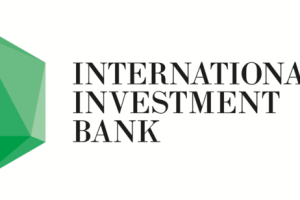Alătură-te comunității noastre!
Vezi cele mai recente știri & informații din piața de capital

When could there be a potential reversal of negative sentiment in global gaming? What could be the „first swallow” that will once again announce a revival in this until recently hottest stock market industry?
Will the „wind of change come from the east” in the form of Tencent, which is increasingly starting to „stretch its elbows” in the European M&A market, and what else might the Chinese giant have in store? Let’s start from the beginning.
China’s gaming dragon
Tencent is a multinational corporation established in China (headquartered in Shenzhen), whose business area is cutting-edge technology and the Internet, and is one of the largest of its kind in the world. T
encent’s main products are the WeChat Pay system and the WeChat app, which are the technological „Bread and Butter” throughout China. Although only 30% of the company’s revenue comes from mobile games, this segment of the corporation’s business gives it the greatest opportunities for overseas expansion.
Tencent is expanding its business not only through organic growth, but also through active M&A activity. Currently Tencent is one of the world’s largest conglomerates in the technology industry, but its beginnings were quite inconspicuous. Tencent’s history began with the release of uncomplicated browser games made available on the QQ platform.
The first game in Tencent’s portfolio was released in 2004. QQ Tang, which is the „alter ego” of the well-known Bomberman game. However, it wasn’t the game about a little pyrotechnics fan that opened the way for Tencent to conquer the gaming world.
The turning point came a year later, when the company released the game Dungeon Fighter Online in China, which turned out to be a hit that brought Tencent $13.4 billion in revenue.
In Europe and the U.S., Tencent is known primarily as a powerhouse in the video game market, notably through its ownership of shares in companies releasing titles such as League of Legends, Fortnite, Assassin’s Creed Odyssey, Call of Duty Mobile, and World of Warcraft.
Tencent’s crown jewels
Tencent has been very active in the M&A market, acquiring more gaming entities. For $230 million, it bought a 100% stake in, among others, Riot Games, the developer of League of Legends, which is one of the most famous multiplayer games in the world. LOL has brought a new quality to E-sports on an unprecedented scale and annually brings Tencent revenues in excess of $1 billion.
Tencent’s other strategic holdings include 80% of the shares of Supercel responsible for the hits Clash of Clans and Clash Royale, 40% of Epic Games, which is the developer of the popular game Fortnite and the architect of the most popular game development engine, Unreal Engine.
Tencent also made headlines in the Polish market when it acquired 22% of Bloober Team. Tencent also holds majority stakes in studios such as Tequila Works, Klei Entertainment and Fatshark.
Will one swallow make a spring?
However, it’s not the deals related to the acquisition of the above holdings that are boosting investors’ hopes for the return of the gaming boom.
Markets were recently hit by news reported via Reuters that Tencent is planning to buy a significant stake in French gaming giant Ubisoft, maker of such blockbusters as games in the Assassin’s Creed series.
And while there is more speculation than fact surrounding this news, it is heating up the imagination of investors in both the global and Polish markets. Investors are hoping that Tencent will not stop in its expansionist drive and will look favorably on companies that have fallen out of favor with investors, such as CD Projekt, Ten Square Games and Huuuge.
It seems, however, that this lasting and meaningful reversal of the dire sentiment in the gaming market needs something much bigger than a lavish acquisition – a lavish, but qualitatively and sales-successful AAA game launch.
And that, at least so far, is not going to happen. Sentiment toward gaming is well reflected in a chart of the ESPO fund, which brings together the world’s major game, software and hardware manufacturers.
Ubisoft – the big winner?
Subsequent investment forums and stock market articles are outdoing themselves in speculation about the potential price Tencent could offer for Ubisoft’s shares if it buys a significant stake.
There is even talk of €100 per share (vs. €46 currently), but these are, for the time being, only speculations. However, even these were enough to make Ubisoft’s share price rise more than 20% at the extreme on the day Tencent’s plans were announced.
It seems that investors, at least for the time being, have no choice but to follow the old rule of „buy the rumor and sell the fact,” because at least for the time being, to paraphrase a classic, „we have plenty of rumors.”
Author: Maciej Kietlinski, XTB Stock Market Expert









Vezi cele mai recente știri & informații din piața de capital